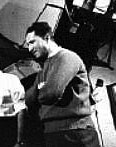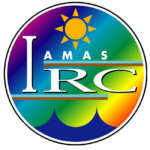
Giorgio Fiocco (1931–2012)
Giorgio Fiocco (born Roma, Italy, 13 June 1931), Professor of Terrestrial Physics at
the University of Roma “La Sapienza” since 1974.
Former positions and assignments:
1957-60 Marconi’s Wireless Telegraph Co., Baddow Research Lab, Great Baddow, UK
1960-61 Cornell Aeronautical Laboratory, Buffalo, N.Y.
1961-68 Massachusetts Institute of Technology, Res. Lab. of Electronics and Dept. of Geology and Geophysics
1968-71 European Space Research Institute, Frascati
1971-74 Universita` di Firenze, Dipartimento di Fisica
1977-82 Instituto per la Fisica dell’Atmosfera-CNR, Roma (Director)
1994-95 Agenzia Spaziale Italiana (President)
Member of the following Societies: Accademia dei Lincei, Roma Academia Europaea, London
University professor and pioneer of physics, Fiocco began his career after graduating in 1956 in Rome, flying to England where he found employment with Marconi. There he worked mainly in developing radar technology. In 1960, he went to the United States and worked first at Cornell, and then at one of the most prestigious scientific institutions in the world: MIT in Cambridge. There he was involved with the pioneering experiment Project “Luna See” that measured the distance between the earth and the moon using a laser beam.
In 1969 he returned to Italy to work at ESRIN in Frascati, a research institute of the European Space Agency where he stayed until its closure, then moved on to the National Research Council of Italy. Meanwhile Fiocco also began to teach at university, first in Florence and then in Rome, where he was called to teach by Dean Ugo Amaldi, a physicist. Giorgio devoted the rest of his life to teaching and research, also holding an appointment at the prestigious Academia dei Lincei and the presidency of the Italian space agency. He gave particular attention to the problems of air pollution and unsustainable development on the planet.
Students and colleagues of Prof Fiocco recall him as not only a great researcher but someone also energetically devoted to teaching and mentoring students, having many great ideas and insights (more than could be investigated over his lifetime), and a man who worked not with a sense of duty but rather with authentic passion.
